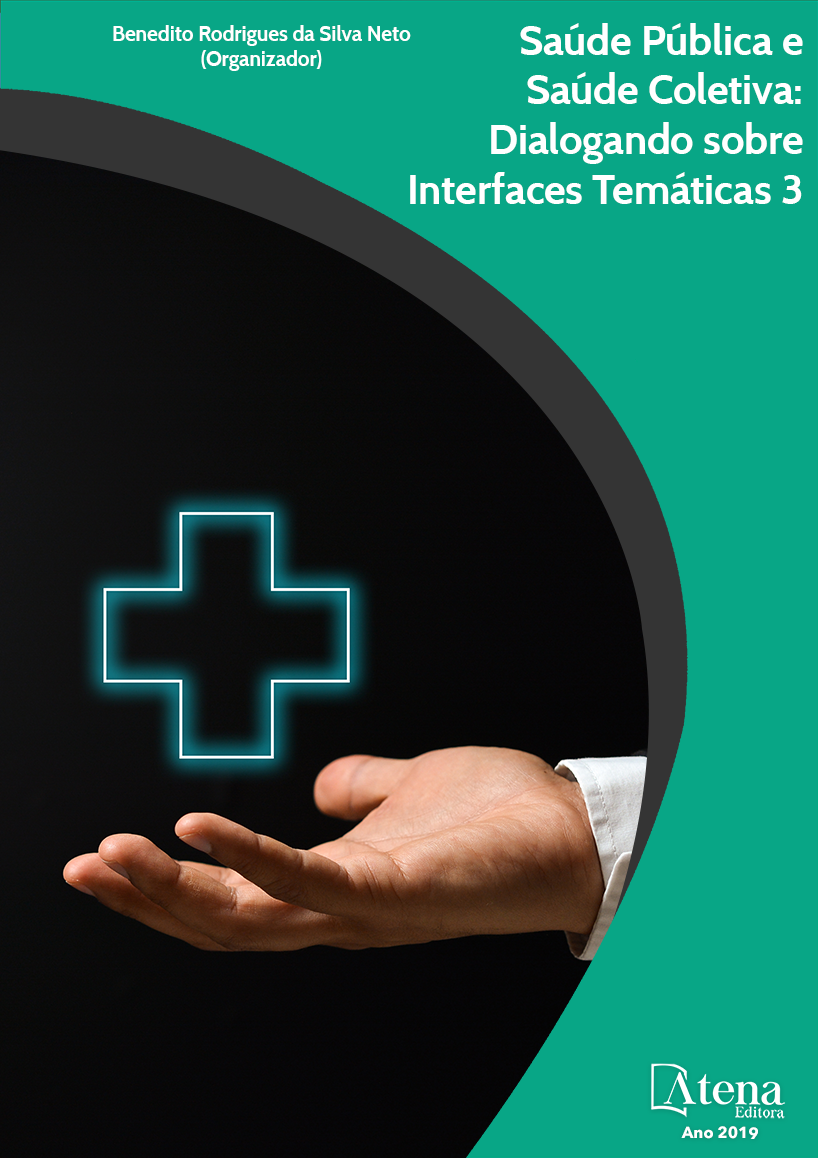
CONTINGÊNCIAS E PARADIGMAS NA COMUNICAÇÃO DE NOTÍCIAS DIFÍCEIS
A comunicação de notícias difíceis
refere a toda informação que envolva uma
mudança drástica e negativa na vida da pessoa
e na perspectiva do futuro e está relacionada
as situações de anúncio do diagnóstico de uma
doença avançada com prognóstico reservado,
graves sequelas e suas consequências na
qualidade de vida e a preparação para os
cuidados paliativos. No entanto, essas práticas
perpassam pelo cotidiano dos profissionais de
saúde que convivem com situações de sofrimento
e morte. Esse estudo objetivou verificar as
contingências e os paradigmas do modelo
operante da comunicação de notícias difíceis
entre enfermeiros que atuam em um Hospital
Universitário. Trata-se de um estudo descritivo
com abordagem quantitativa. A amostra
correspondeu a 48 enfermeiros. Os dados
foram coletados por meio de um questionário no
período de janeiro a julho de 2013. Observouse
que 97,75% dos entrevistados não possuem
nenhum tipo de preparação tanatológica e nem
qualquer tipo de informação na graduação para
comunicar as notícias difíceis; 54,16% referem
que só anunciam as notícias difíceis porque
é parte do seu trabalho; 33,33% relatam que
o profissional mais indicado para informar a
notícia difícil é o médico. As notícias difíceis
fazem parte do cotidiano das práticas diária do
enfermeiro, portanto, é necessário que sejam
capacitados uma vez que lidam com situações
de sofrimento e morte. O estudo mostra que
o tema morte e morrer é pouco discutida nas escolas de formação e em eventos
científicos, evidenciando que os enfermeiros encontram uma certa dificuldade para
lidar com essa temática.
CONTINGÊNCIAS E PARADIGMAS NA COMUNICAÇÃO DE NOTÍCIAS DIFÍCEIS
-
DOI: 10.22533/at.ed.9071902095
-
Palavras-chave: Enfermagem. Tanatologia. Comunicação em saúde.
-
Keywords: Nursing. Thanatology. Health communication.
-
Abstract:
The communication of difficult 2art refers to all information that involves a
drastic and negative change in the life of the person and in the perspective of the future
and it is related the situations of announcement of the diagnosis of na advanced disease
with reserved prognosis, serious sequels and its consequences in the quality of life
and preparation for palliative care. However, these practices permeate the daily life of
health professionals who live with situations of suffering and death. This study aimed
to verify the contingencies and paradigms of the operative 2arto f2 the communication
of difficult 2art among nurses who work in a University Hospital. This is a descriptive
study with a quantitative approach. The sample consisted of 48 nurses. The data
were collected through a questionnaire from January to July 2013. It was observed
that 97,75% of the interviewees do not have any type of tannin preparation or any kind
of information in the graduation to communicate the difficult 2art; 54,16% report that
they only announce the difficult 2art because it is 2arto f their work; 33,33% report
that the most appropriate professional to report the difficult 2art is the doctor. Difficult
2art is 2arto f daily routine of nurses, so they need to be trained as they deal with
situations of suffering and death. The study shows that the issue of death and dying is
little discussed in training schools and scientific events, evidencing that nurses find it
difficult to deal with this issue.
-
Número de páginas: 15
- Elza Lima da Silva
- Marina Belchior Cavalcanti
- Aurean D’Eça Júnior
- Flávia Baluz de Farias de Bezerra Nunes
- Aline Lima Pestana Magalhães
- Rosangela Almeida Rodrigues de Farias
- Rita Rozileide Nascimento Pereira


